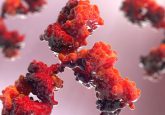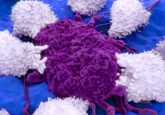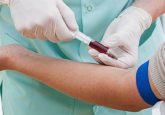Global approaches to cancer prevention: an interview with Onyema Greg Chido-Amajuoyi

Have anti-smoking advertisements and e-cigarettes negatively or positively impacted tobacco use? How could gender-neutral vaccination initiatives reduce cancer incidence? In this interview we speak with Onyema Greg Chido-Amajuoyi (Texas A&M School Medicine/Christus Health, TX, USA) to discuss his work on cancer prevention and global health in order to uncover some of the answers to these pressing questions.
How has the COVID-19 pandemic influenced HPV vaccine uptake and what tactics can help to increase the number of individuals being vaccinated?
The COVID-19 pandemic has had a negative impact on HPV vaccination. At the height of the pandemic, the US Centers for Disease Control and Prevention (CDC) reported an 80% reduction in weekly provider orders of the HPV vaccine. In our study published in the Journal of National Cancer Institute – Cancer Spectrum, we obtained insights from healthcare providers surveyed during the COVID-19 pandemic to examine their observations of changes in HPV vaccination behaviors. We found that the pandemic had a negative impact on HPV vaccination. Our study identified barriers to HPV vaccination unique to the COVID-19 pandemic, for example, the leading reason for HPV vaccination hesitancy and refusal during the pandemic was fear of contracting COVID-19 during clinic visits. We proposed that public health agencies work with healthcare facilities to ensure patient visits are safe. The American Cancer Society published useful strategies to promote HPV vaccination during the pandemic such as offering vaccination through parking lot clinics, community partnerships, and mobile units, as well as prioritizing vaccination of pre-teens and younger adolescents. Thankfully the rates of COVID-19 infection and mortality have declined significantly in the US, since the development of COVID-19 vaccines. We expect patients should now feel safe to resume their routine cancer prevention activities including HPV vaccination and cancer screening.
How can initiatives such as gender-neutral HPV vaccination help prevent some forms of cancer?
Gender-neutral HPV vaccination is crucial to the prevention of HPV-associated cancers. While the incidence of oropharyngeal cancer is on the rise especially among men, the initial widespread HPV vaccination of girls has brought about a steady decline in the incidence of cervical cancer in the US. Unfortunately, the tale is starkly different in other parts of the world with the burden of cervical cancer and other HPV-associated cancer being remarkably high in Africa. Sadly, gender-neutral HPV vaccination has not been adopted globally. Very few African countries have incorporated HPV vaccination into their national immunization programs and no African country offers gender-neutral HPV vaccination, with the vaccine being offered only to girls. In 2019, we published an article in the Lancet Global Health advocating for the institution of gender-neutral HPV vaccination to national immunization programs in Africa. Sadly, this has not made much headway to date, with vaccine shortages, cost of procurement, and issues around intellectual property and technology transfer being major barriers. There’s still a lot of work to be done to bring about equity in cancer prevention globally and ensuring gender-neutral HPV vaccination globally would be a great start.
What effect have anti-smoking advertisements and e-cigarettes had on those attempting to quit smoking?
Tobacco use causes 25% of all cancer deaths globally. Anti-smoking advertisements when delivered effectively have the capacity to curb smoking initiation among non-smokers and help smokers quit. For example, the Tips from Former Smokers campaign, administered by the CDC, achieved an exposure rate of almost 80% among smokers and was effective at increasing population-level quit attempts. While at MD Anderson, we evaluated a unique antismoking advertisement campaign sponsored by the tobacco industry following a US Federal court order. In two of our studies published in JAMA Network Open, we used data from the National Cancer Institute’s Health Information National Trends Survey (HINTS) to examine the reach and impact of this campaign. We demonstrated that the reach of the Industry-sponsored antismoking advertisements was suboptimal. While the campaign was associated with increased intentions to quit smoking; however, it was not effective at stimulating attempts to quit among current smokers. Therefore, taken together, effective design and implementation of antismoking advertisements are critical to their success. For example, the Tips from Former Smokers campaign included images, and videos of former smokers of different backgrounds living with serious, long-term health effects from smoking. This has been shown to be highly effective.
There is a lot of discourse about the use of e-cigarettes to quit smoking. A study we conducted revealed that over 40% of Texas adults who had ever used E-cigarettes, used them in a bid to quit smoking. However, at this time no e-cigarette device has been approved by the US FDA for smoking cessation. The long-term health effects of e-cigarette use are yet to be fully established. FDA-approved tobacco cessation aids include nicotine replacement therapy and pharmacotherapy including bupropion and varenicline.
How would you like to see the field of cancer prevention evolve over the next 5 years?
Over the next 5 years, I hope to see significant strides made toward bridging disparities in cancer prevention and outcomes. The 2023 American Cancer Society Report has shown disparately high rates of cancer mortality among Black/African Americans. Most of these cancer deaths could be prevented through early detection. I hope to see increased uptake of cancer screening globally. Several studies are being conducted to develop novel cancer screening modalities, I hope these lead to the emergence of novel screening tools in the near future that substantially improve the early detection of cancers. The rate of tobacco use continues to steadily decline globally. I hope to see further declines in smoking rates and to see that smokers are being offered adequate assistance with smoking cessation. Importantly. I would love to see widespread gender-neutral HPV vaccination adopted globally.
Interviewee profile:

My name is Onyema Greg Chido-Amajuoyi. I am a resident physician and epidemiologist. I’m keenly interested in cancer prevention and global health. My research is centered on the use of large population-based datasets to examine the epidemiology of cancer prevention indicators such as tobacco control, HPV vaccination and cancer screening. I am also interested in cancer survivorship research and clinical trials. I completed a postdoctoral fellowship in cancer prevention and control within the cancer prevention research training program at The University of Texas MD Anderson Cancer Center (TX, USA). I am currently in internal medicine residency training medicine at Texas A&M School Medicine/Christus Health. I was also recently selected to participate in the FDA-AACR Oncology Educational Fellowship program.





